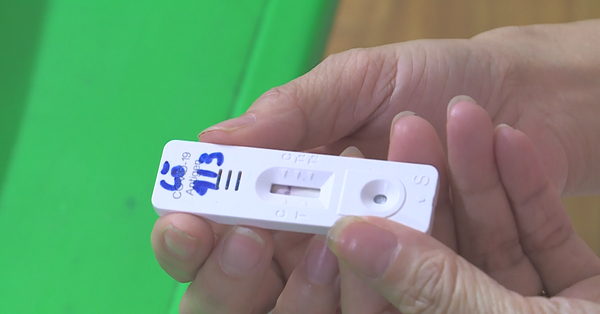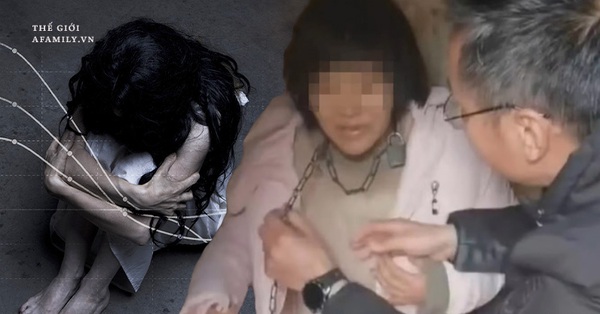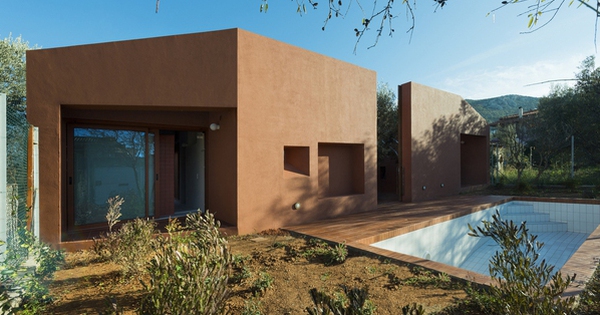How to clean old, rusty cast iron pans with salt and oil simply
The cast iron pan helps you to prepare a lot of super delicious, fast and convenient dishes. However, cleaning cast iron pans is not easy. The outer layer of rust causes the pan to lose its aesthetics, and at the same time reduces cooking efficiency.
This article will show you how to clean cast iron pans quickly and extremely easily. Please also refer!
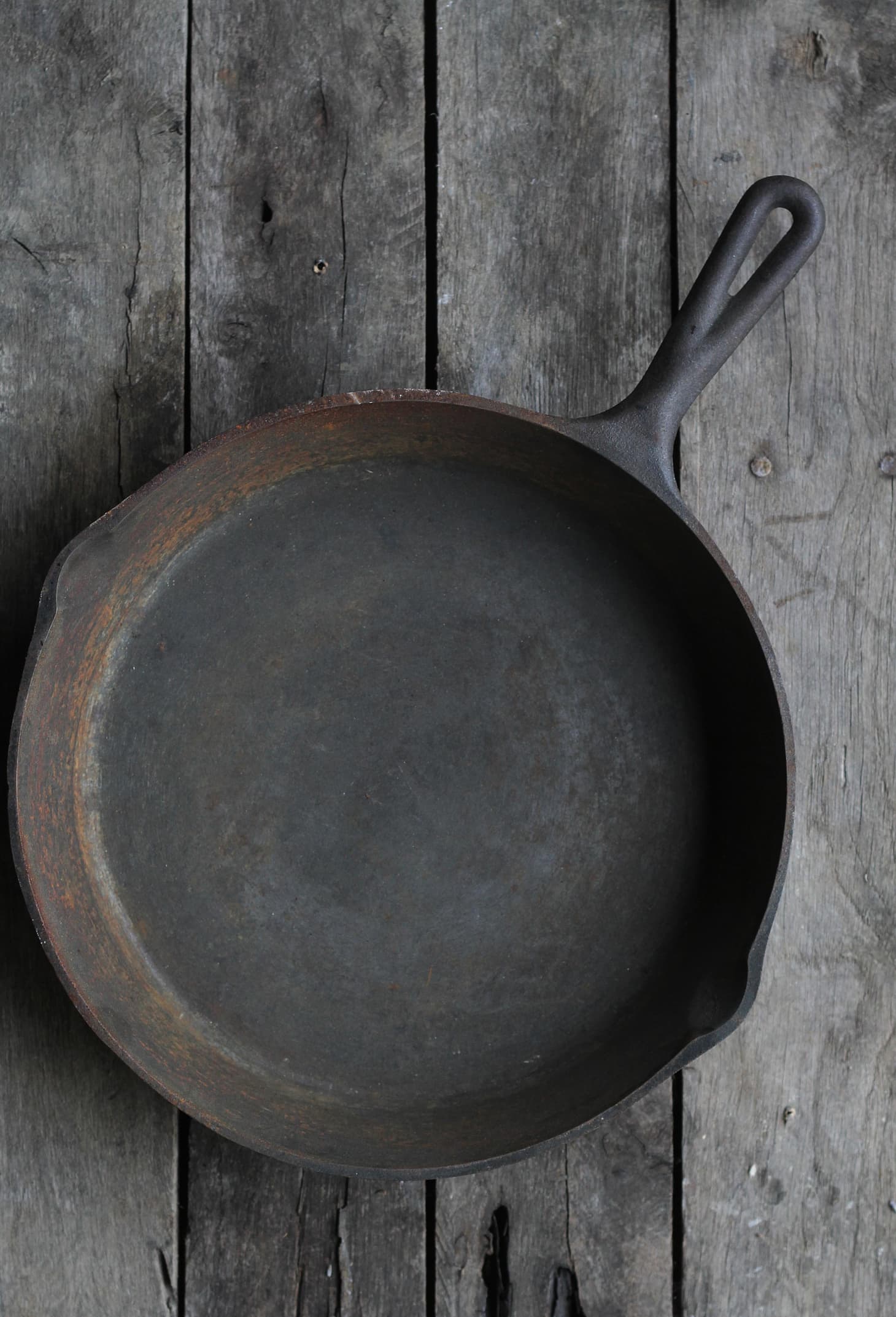
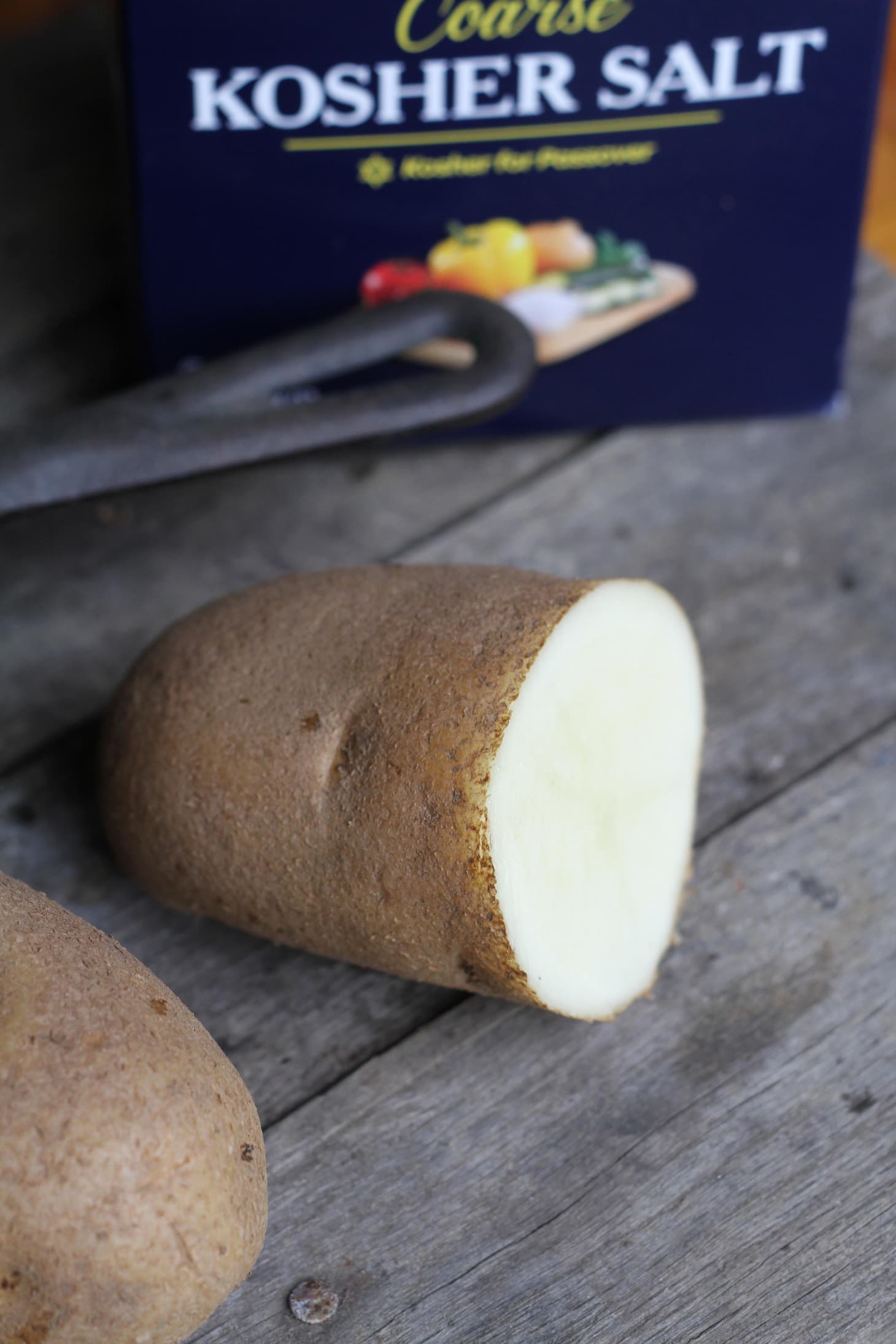
What you need to prepare
– Refined salt
– Cooking oil (vegetable oil or olive oil)
– 1 potato
Guide
This step can cause your home to become messy, cluttered and littered with oil and fine salt stains if not skillful. Therefore, what you need to do is probably put a layer of paper on the bottom of the table or floor to easily carry out this process.
– Step 1: Sprinkle a large amount of fine salt into the pan. For pans with a rim width of about 30.5cm, you may have to use about half a cup of salt (or more).
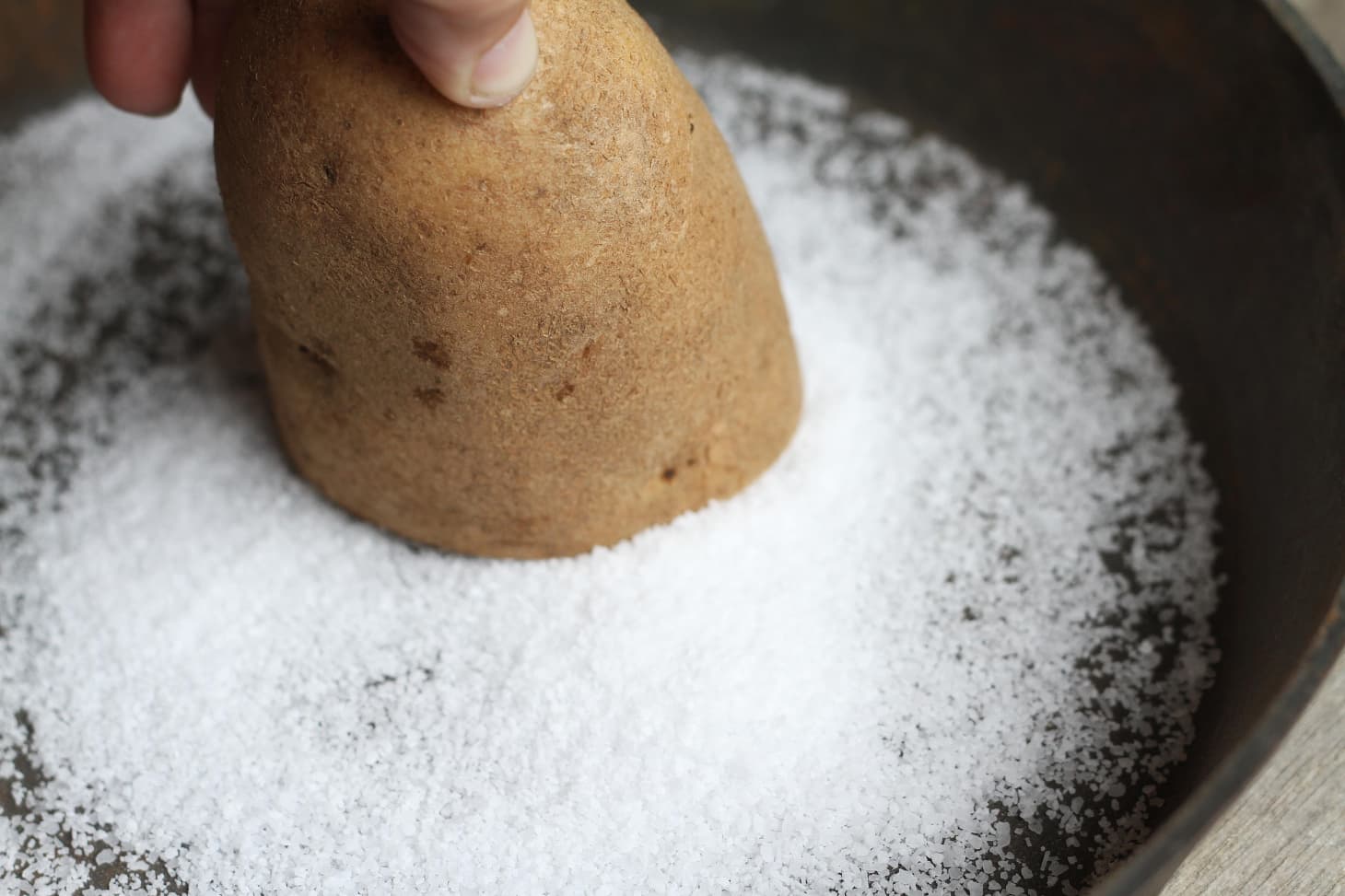
Step 2: Cut a potato in half so that the tuber can easily fit in the palm of your hand.
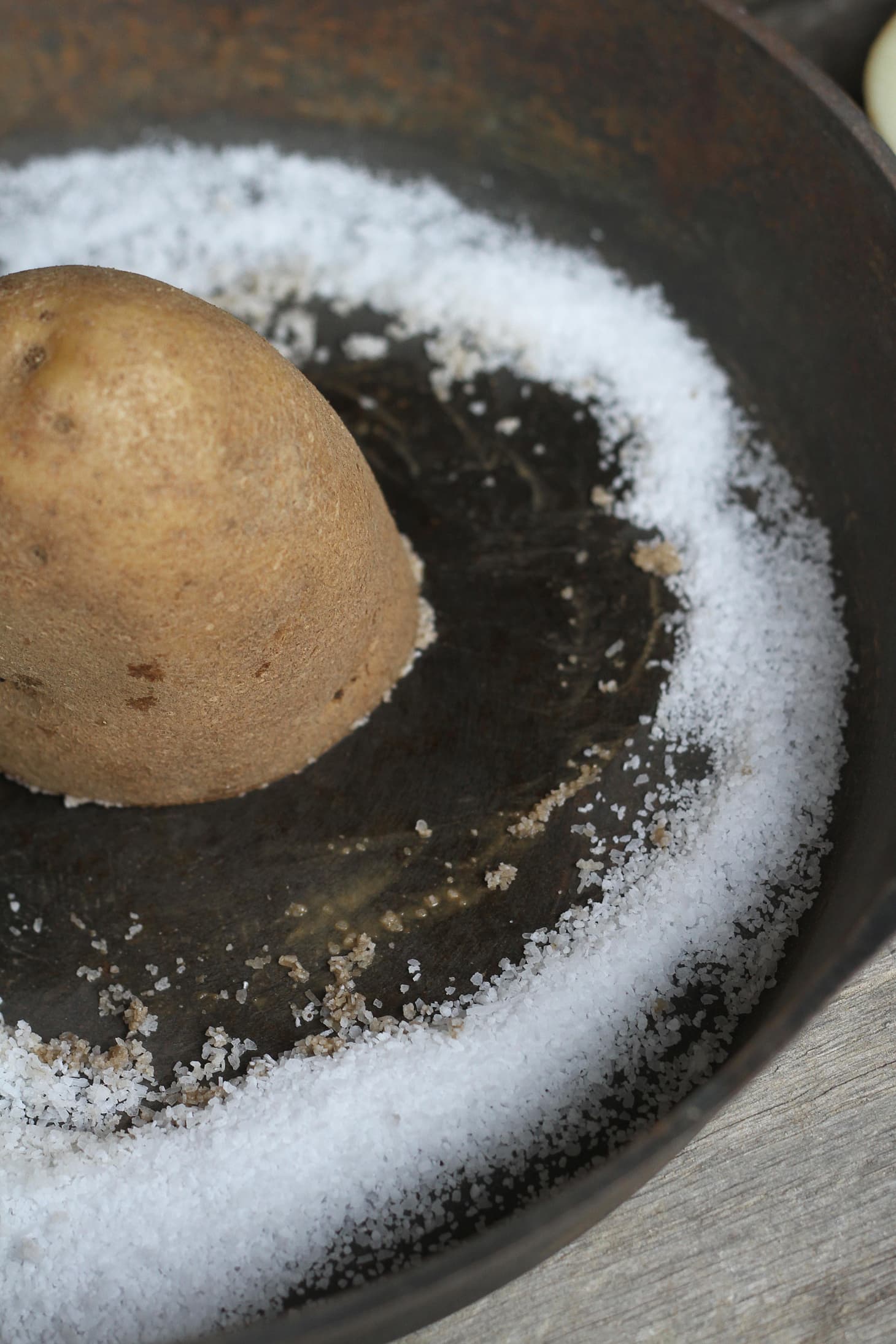
– Step 3: Put the cut potatoes in the salt pan and start scrubbing.
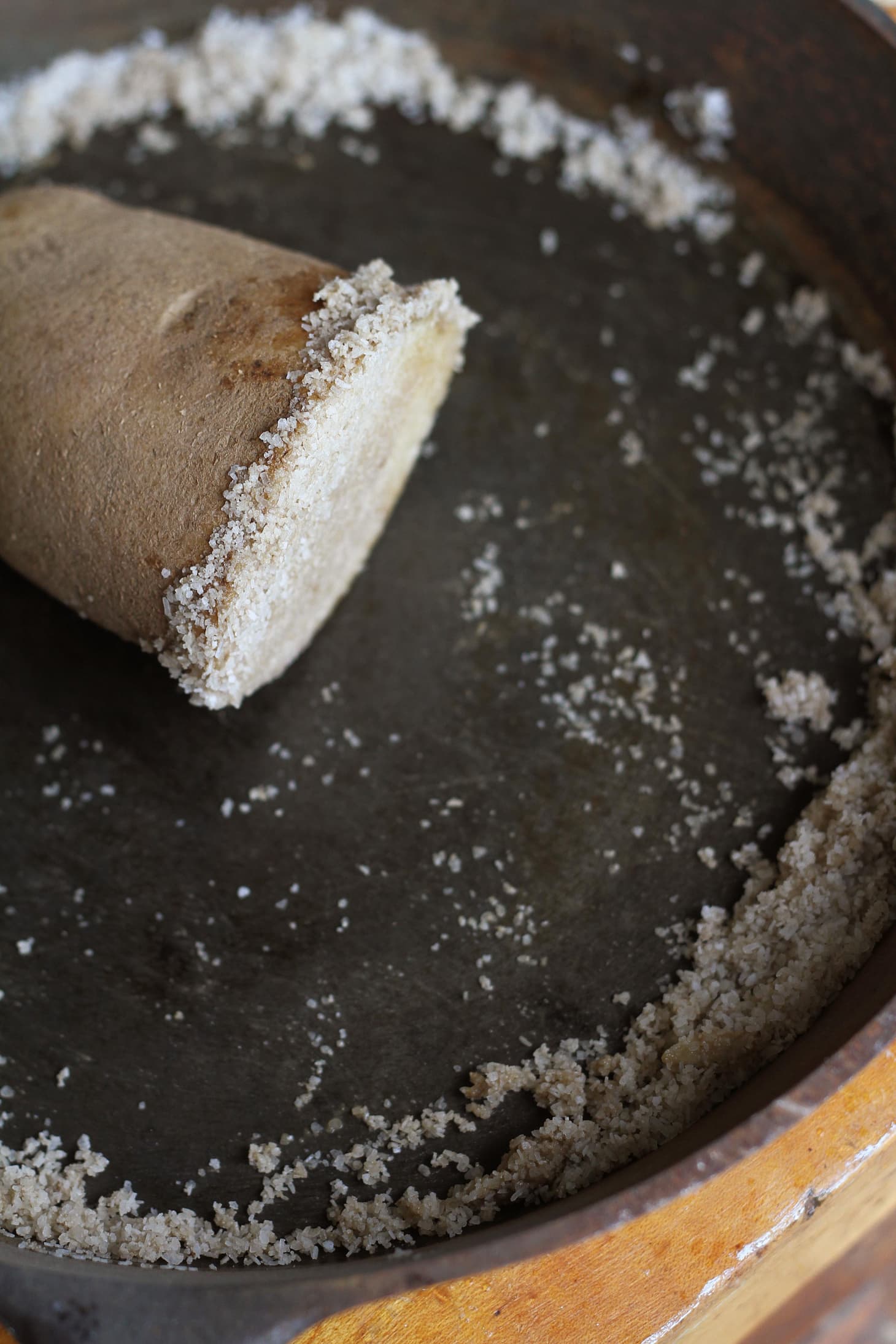
Should rub the potato pieces vertically for more convenience, avoid rolling.
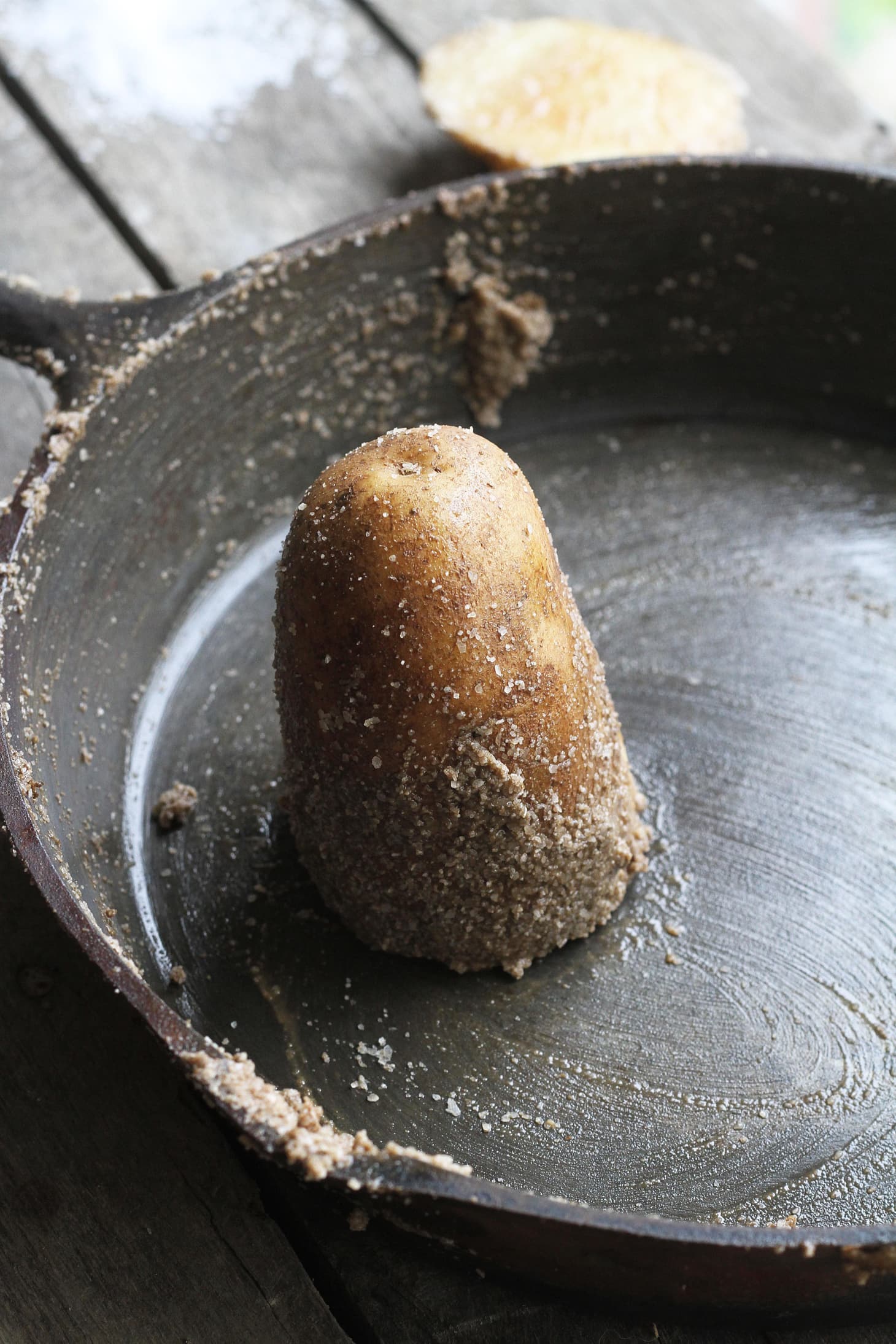
Then, use the potato pieces to rub around the pan in a circular motion, applying moderate pressure.
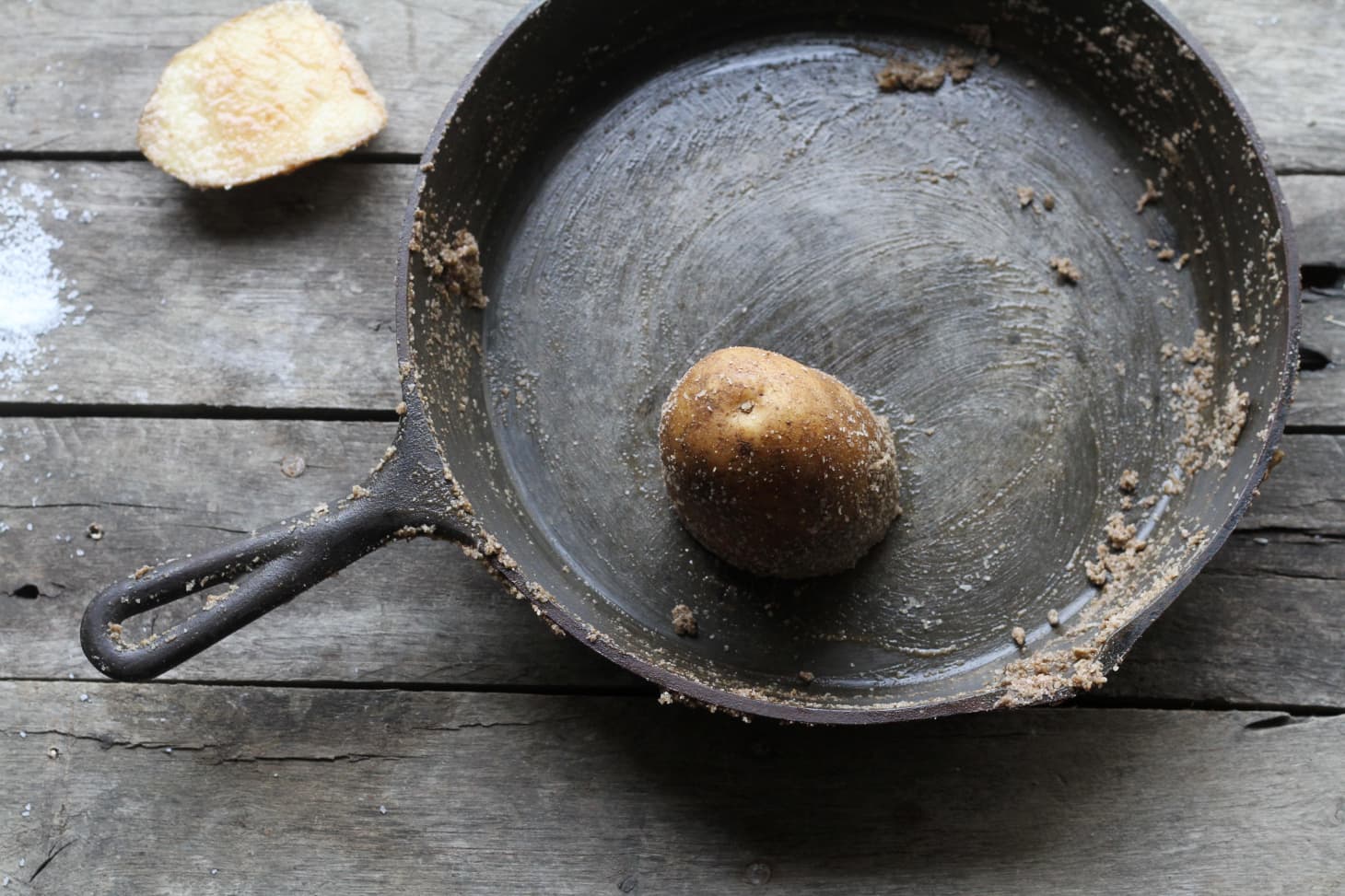
When the potato is sufficiently moist, it will help remove rust stains.
Step 4: Continue scrubbing the sides, sides and bottom of your pan. Also do not forget the handle of the cast iron pan.
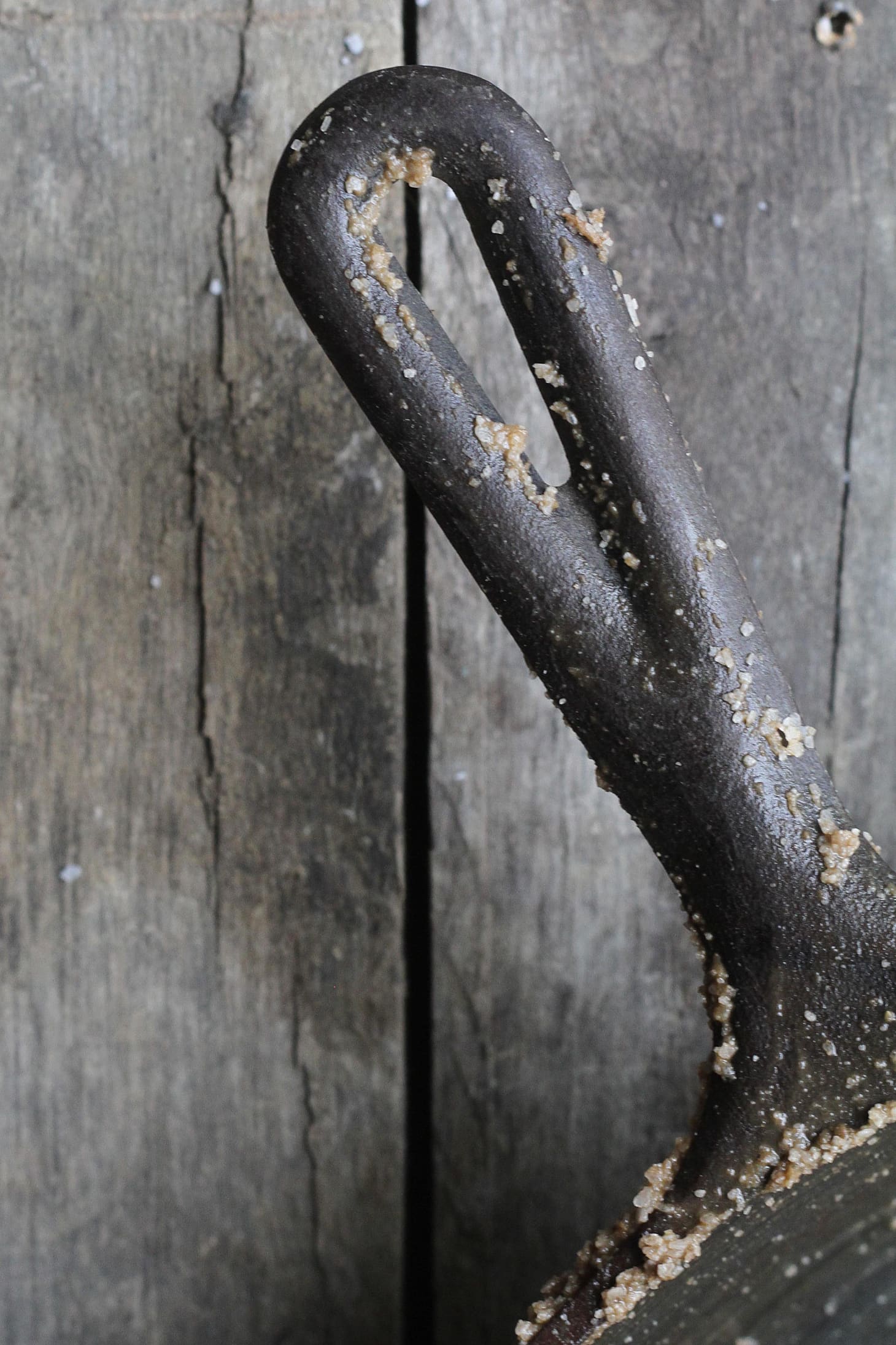
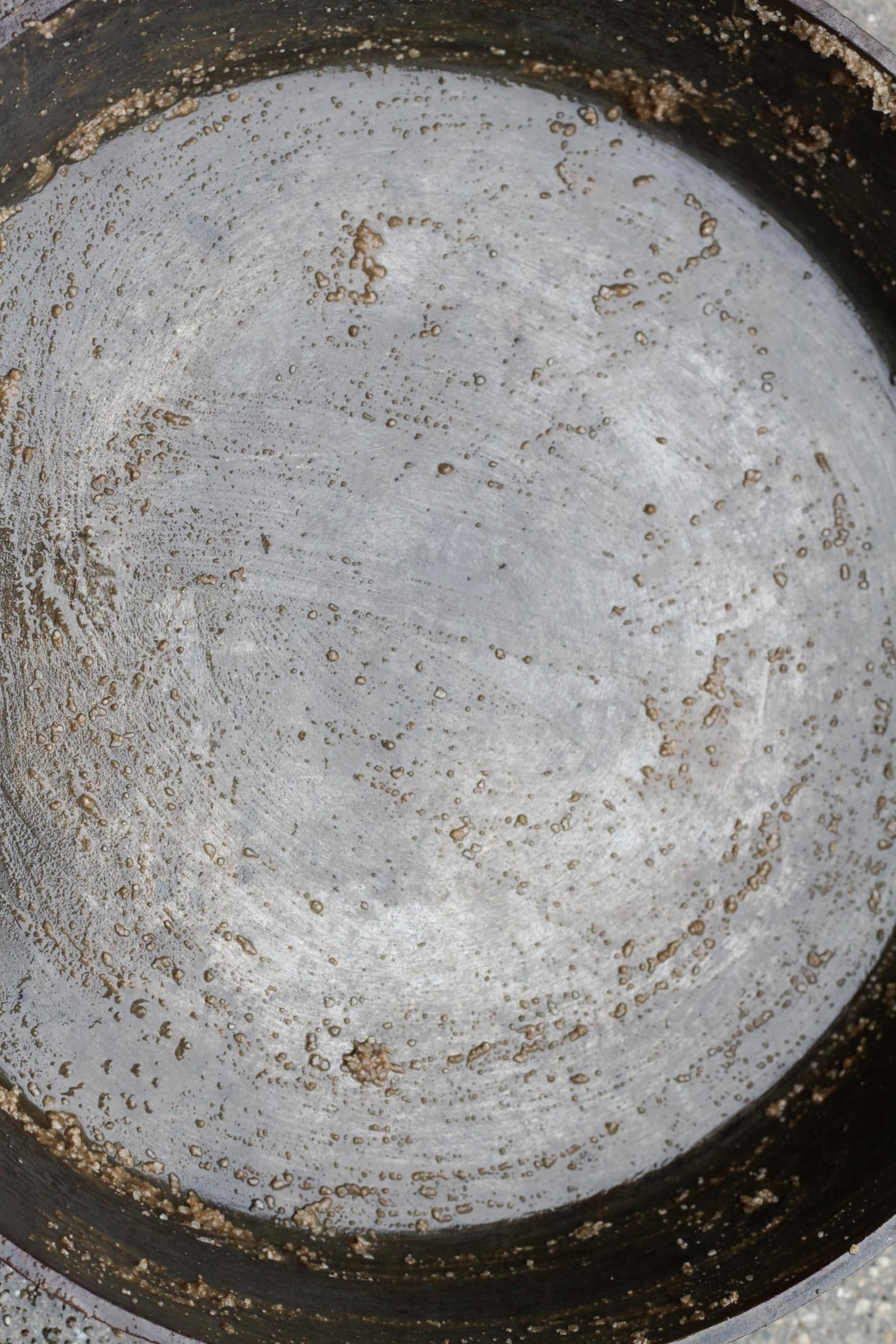
Salt gets dirty very quickly. Depending on the condition of the cast iron pan, you can wash off the dirty salt and start over with a fresh amount of clean salt to continue the process until the pan is back to the shiny state you desire.
Step 5: When the pan is clean, rinse it with water and dry it. Place the pan on the stove over low heat for about a minute or so to help dry out any remaining moisture.
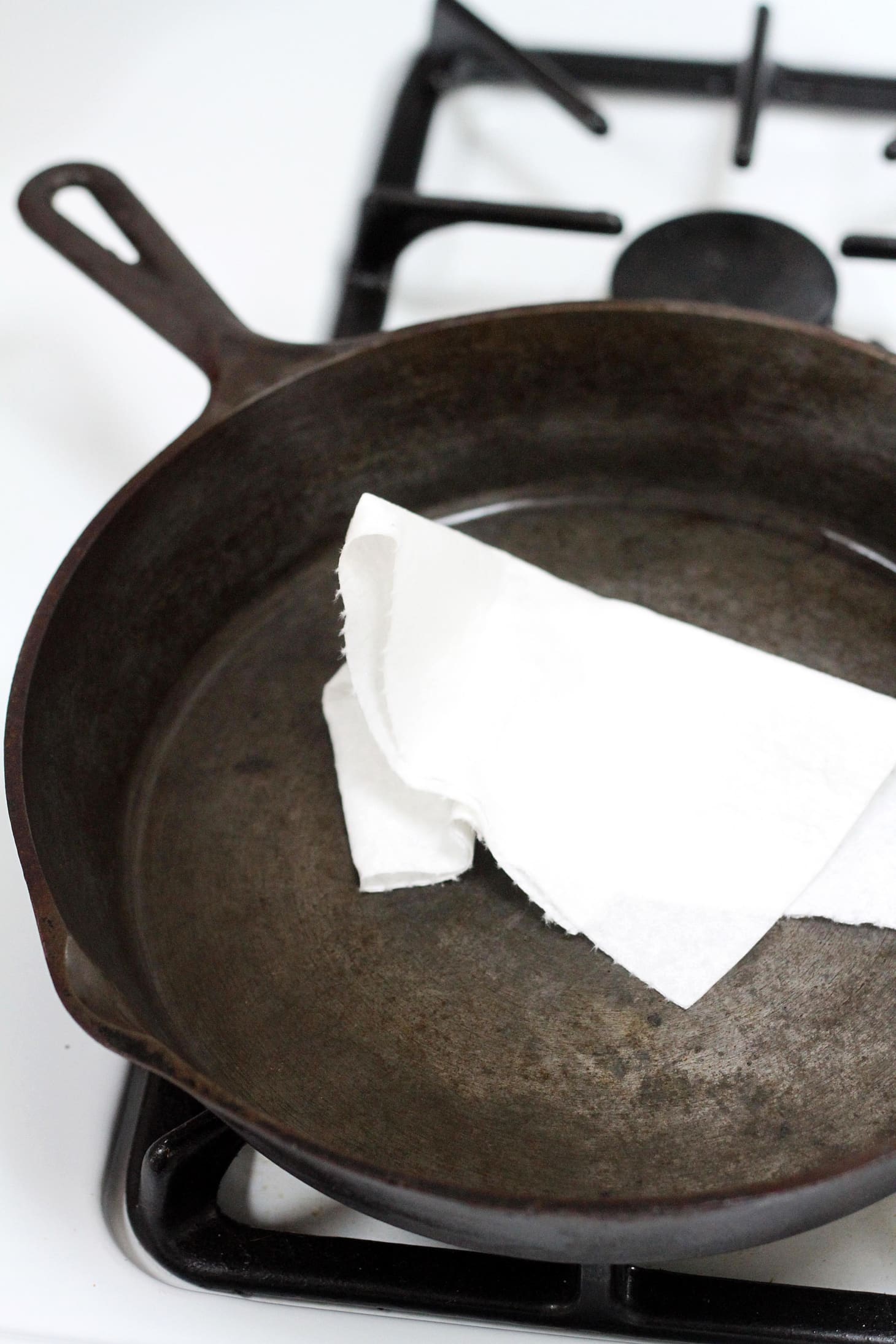
– Step 6: After the pan is dry, add a little oil to the pan and rub it with a paper towel until the bottom and sides of the pan are even. Next, use a clean paper towel to absorb excess oil.
– Step 7: Keep the pan on low heat for 30 minutes.
Step 8: Once your pan has cooled, wipe off any remaining oil before storing it away.
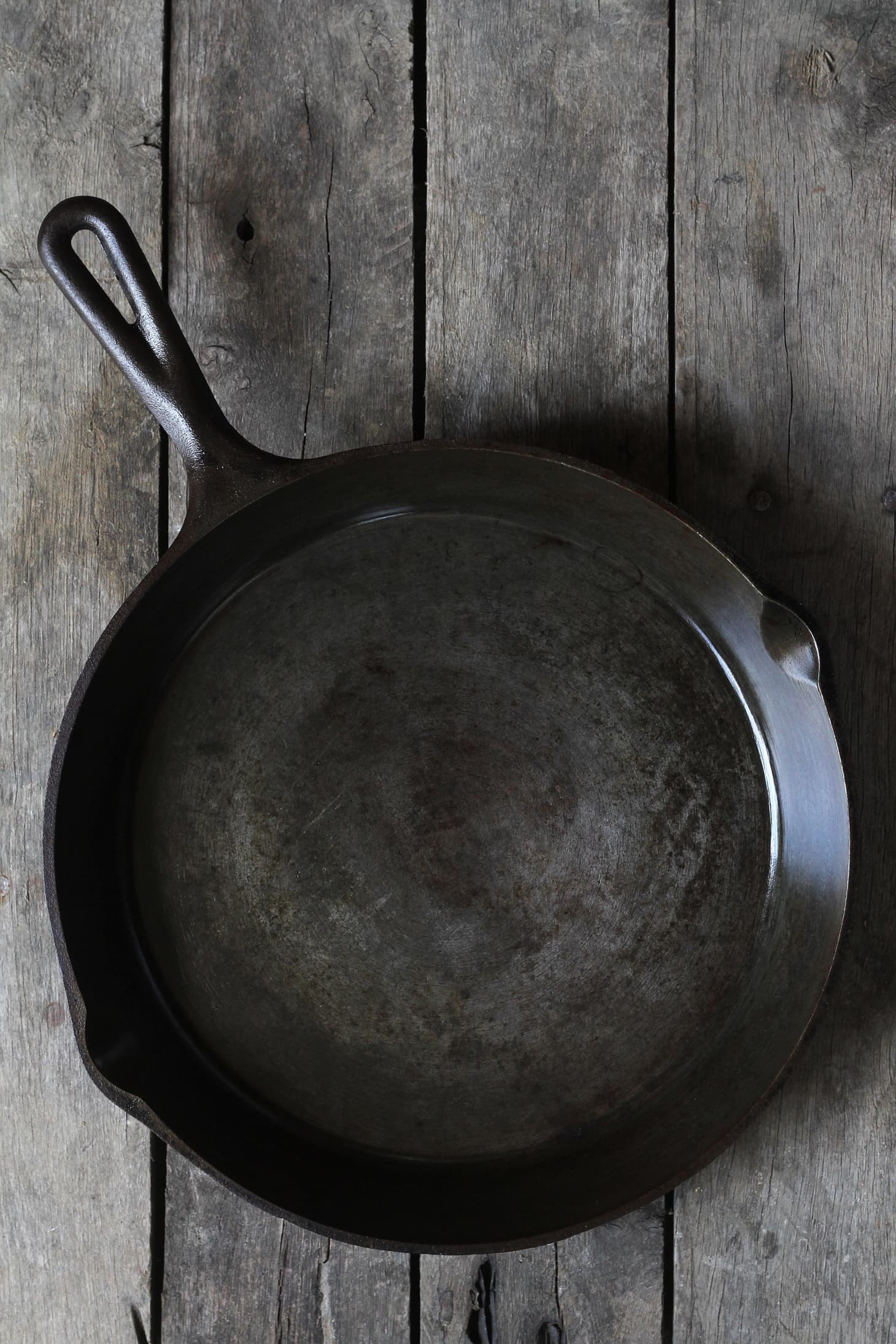
Tips to keep cast iron pans like new
Cleaning a cast iron pan is the last step you have to do when your pan is black and rusty. Therefore, to avoid this, you should pay attention to properly and regularly cleaning the pan with the following tips:
1. Clean the pan with warm water
After processing, soak the pan with warm water to soften the stains. With this step, cleaning your cast iron pan will become easier than ever.
2. Regular, regular cleaning
You should regularly scrub the pan, thoroughly cleaning the entire surface. Thanks to that, the stains are difficult to penetrate deeply, easy to clean for the next time cleaning the pan.
3. Store the pan in a clean and dry place
Cast iron pans tend to rust very quickly, so you need to keep them away from wet places.
According to apartmenttherapy
at Blogtuan.info – Source: Kenh14.Vn – Read the original article here
